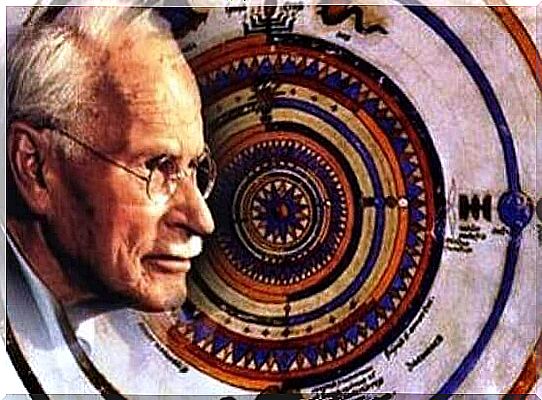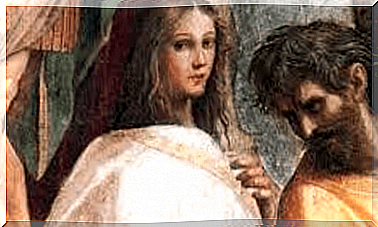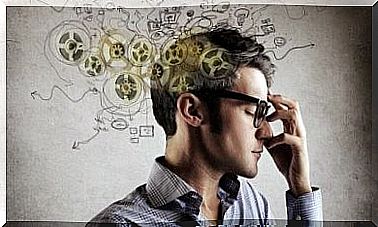Last Interview With Carl Jung: His Key Knowledge
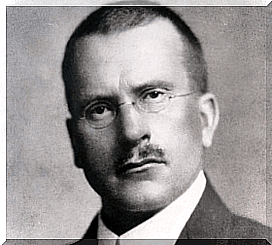
Carl Jung’s last interview helps us to understand the depth of his analysis, the basis of his beliefs but also the subtleties of his theories. Jung was a Swiss psychiatrist and psychologist born in 1875. His concerns and disagreements with the psychoanalysis of his time led him to found the analytical school.
He was first of all the student and collaborator of Sigmund Freud, with whom he disagreed during the founding of his current. The latter was strongly influenced by other branches of knowledge, such as anthropology.
On June 7, 1960, Georg Gerster interviewed Jung for a Swiss radio show on the occasion of his 85th birthday. This interview is of particular importance when we know that Jung died a year later, on June 6, 1961.
In this article, we invite you to immerse yourself in the universe of this particular and fascinating 20th century author. Let’s take a closer look.
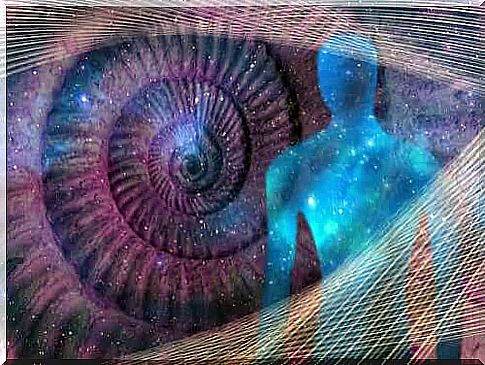
Carl Jung and his special vision of God
During the interview, the author asserts that religious phenomena basically escape no one. Thus, the simplest expressions that bring up the word God have psychological meaning for those who speak them.
The unknown, the inexplicable or what transcends us, therefore has a particular meaning on the anthropological and psychological level. This is what he says:
Archetypes according to Carl Jung
The concept of archetype has a close connection with the concept of God. To understand it, we must first of all detach ourselves from the ecclesiastical meaning that it can have for people according to their culture or their religion. Jung goes further, he speaks of an emotional sense much older than one can imagine.
Archetypes are then patterns of behavior that are repeated throughout history. It is a matter of man’s need to find answers to the inexplicable in faith. It all stems from a fundamental and unconscious psychological need.
The limiting moments
In this interview, Jung talks about times when a man is dominated by his emotions. Fear and uncertainty are the most common of these manifestations. And it is in these moments, when spontaneously and without any reflection, the human being makes “prayers” which escape reason and deliver him to the unknown.
Phenomena linked to the soul according to Carl Jung
The interview with Carl Gustav Jung also includes important reflections on the soul, since the author speaks of “religious” phenomena as well as phenomena of the soul. These phenomena, far from being taboo, are an inevitable part of human nature.
When the soul saves us
When a man finds himself in an emergency situation, his instincts come to his aid. It refers here to the forms of action, thought and feeling that we adopt in these situations. For Jung, these models are always present and are automatically evoked, as any animal would.
A psychic phenomenon
In this interview, Carl Jung also reveals that phenomena of the soul shape the psyche. They are part of a system of instinctive behaviors. We can find various examples of this in everyday life:
- The uncertainty. When we want something forcefully or don’t know what’s going to happen, we all use rituals or little amulets to help the spell. For example, stepping on one foot or dressing in certain clothes.
- The danger. When we put ourselves in a defensive position and we say prayers. The promises we make inwardly are a clear example of this.
- Finally, the decisions. Faced with a difficult and particularly important choice, our unconditional desires often appear in dreams.
Dreams according to Jung
In Carl Gustav Jung’s interview, we can also observe his differences with his teacher, Freud. For Jung, dreams fulfill a more complex function than the simple satisfaction of the subconscious. On the contrary, they can have a social goal or an orientation goal. So it requires an understanding of the culture.
A productive exchange with the unconscious
Far from being satisfied with satisfying unfulfilled desires, dreams can guide therapy. Every psychologist encounters problems that he cannot solve.
This is where the patient’s subconscious can manifest itself as a dream and guide therapy. For example, we see the emergence of lucid dreams with transcendent meanings. The author describes them in countless examples of primitive societies.
An unlimited horizon
Carl Jung says that people often suffer from having very biased, very distorted views. He claims that having an extremely skeptical view can lead to neglecting a person’s sentimental sphere.
In such situations, suffering results from limited experience and insufficient or no attention to matters relating to soul and feelings. For Jung, denying dreams is an attempt to silence the soul.
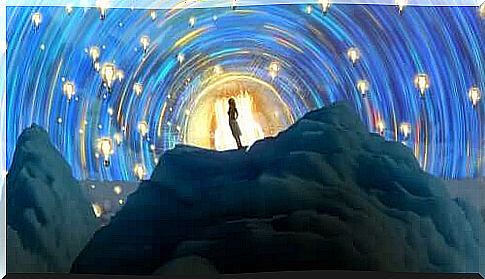
Jung: a critical look at culture
We can say that Jung is a reference in psychology who is distinguished by the fact of not being deterministic. Unlike his predecessors and successors, he does not limit the study of human phenomena to a single vision or a single method. In addition, the author takes a critical approach when it comes to analyzing our culture.
- The lack of connection with the unconscious. The relationship with the incomprehensible has become a taboo according to him. For Jung, the need to connect with the unknown through spiritual means would have been lost.
- The rupture of a spiritual tradition. The intellectualism of the time abandoned spirituality. Today, we mainly blame spirituality for the atrocities that many have committed in its name in the past.
Carl Jung, a man who had not lost hope
Carl Gustav Jung’s last interview finally ends with a reflection on the solutions to the problems posed. For the author, it is impossible to change the course of things, but he nourishes a hope when he affirms that modern man can live contemplative experiences by asking himself how far his certainties go.
